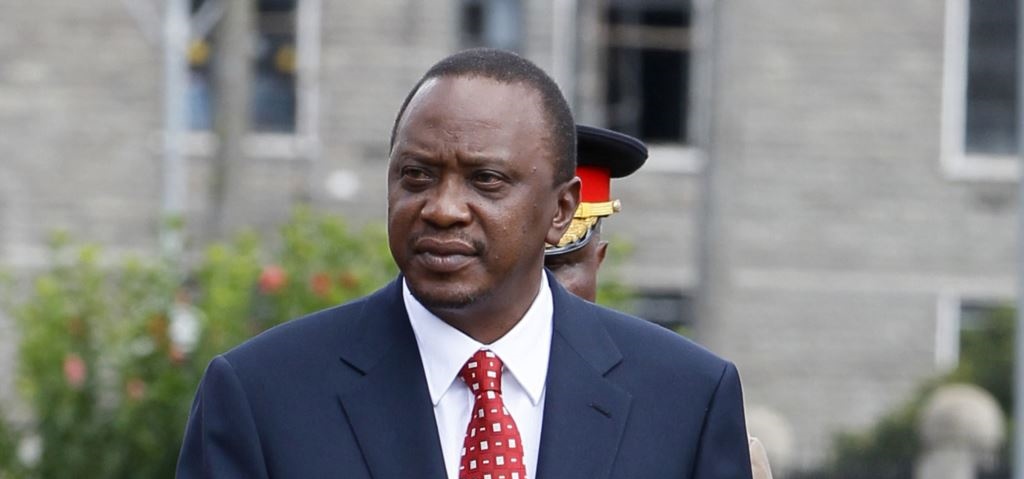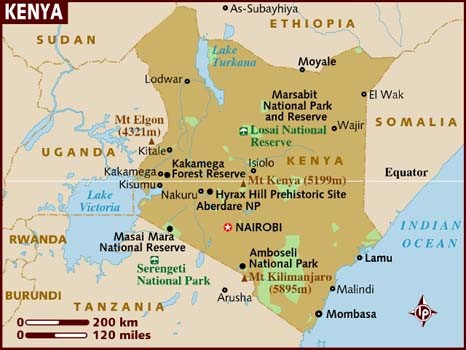Corruption crackdown in Kenya
May 29, 2018 | Expert Insights

President Uhuru Kenyatta had promised to act against widespread corruption in the country when he was first elected in 2013.
Background
Kenya is a country on the east African coast. It is known as “the cradle of humanity”, due to archaeological evidence of what may be the earliest human ancestors from 3.3 million BC. Some of the earliest known inhabitants of the region are the Bantu people. Kenya has historic trade ties to the Arab world, Persia, and India. European exploration in the region began in the 1800s, and the British Empire established the East Africa Protectorate in 1895. In 1920, it became the crown colony of Kenya.
Kenya gained independence in 1963. The country was a de facto one-party state from 1969 until 1982. The country began political liberalisation in 1991. The country held peaceful, multiparty elections in 2002 when President Daniel Moi stepped down. Kenyan elections have been marred by ethnic violence and allegations of fraud. The current Kenyan President, Uhuru Kenyatta, won a hotly contested but largely peaceful election last year. Kenyatta is the son of Jomo Kenyatta, independence leader and the country’s first President.
Corruption in Africa
Corruption is defined as the abuse of entrusted power for private gain. Nearly 75 million people in Sub-Saharan Africa are estimated to have paid a bribe in 2015 – some to escape punishment by the police or courts, but many forced to pay to get access to the basic services that they need. José Ugaz, Chair, Transparency International noted, “Corruption creates and increases poverty and exclusion. While corrupt individuals with political power enjoy a lavish life, millions of Africans are deprived of basic needs like food, health, education, housing, access to clean water and sanitation.”
Transparency International has rated Kenya 143 out of 180 countries sampled in its latest corruption index. The country was rated with a score of 28 on 100, with 0 being “highly corrupt” and 100 being “extremely clean.” A report by Auditor General Edward Ouko earlier this year revealed that $400 million of public funds could not be accounted for. Studies on Kenya have noted that corruption and the “zero-sum nature of Kenyan politics” may have played a huge role in inciting violence after Raila Odinga lost the December 2007 elections. Council on Foreign Relations notes, “Unless one’s ethnic group was in office, there were no possibilities for economic or political advancement.” Corruption thus “warps the election process.”

Analysis
Kenyan police have detained over 50 officials and executives in a recent anti-corruption crackdown. The crackdown followed weeks of public outrage about the Sh9 billion scandal, as it has come to be known. The scandal involves the suspected theft of 9 billion Kenyan shillings (approximately $80 million) from the country’s National Youth Service (NYS). The suspects include 40 public servants, 14 directors of business entities and ten companies. 20 suspects have been taken into custody. Among the arrested officials is the Director General of the NYS Richard Ndubai, and Public Service Principal Secretary Lillian Mbogo-Omollo.
The NYS is a paramilitary organisation that provides young people skills and provides them employment in government projects. The NYS was a major facet of Kenyatta’s plan to increase youth employment. However, this is the second scandal to hit the organisation in recent years. This year, courts acquitted approximately 2 dozen officials who were on trial for misappropriating $475,000 from the NYS in 2015.
The charges in the Sh9 billion scandal include abuse of office, stealing public funds and forgery. The funds were appropriated through the use of fake invoices. Kenyan media has reported that according to the organisation’s statements, it would have paid around $100,000 for beef in one year. Each recruit would have had to eat 66kg of beef a day for this to be true.
"The DPP assures the Public that appropriate directions based on analysis of evidence and the law shall be issued without undue delay. The DPP wishes to express his appreciation to the efforts and dedication of Multi-Agency Task Force Team in ensuring expeditious and thorough investigations," Director of Public Prosecution Noordin Mohamed Haji tweeted. He added that the investigation would soon focus on the banks and companies involved in the scam.
On Monday, Kenyan President Uhuru Kenyatta promised to act against those "caught up in the web of corruption.” “We are not going to tolerate unethical people. People with responsibility must be ready to serve and not to be served,” Kenyatta said. Kenyatta has been criticised for failing to bring corrupt officials to justice. John Githongo, former anti-corruption journalist under Mwai Kibaki said, “People don’t have faith the judiciary will be able to handle these cases, so we need the president to fire a whole bunch of people who are implicated in a raft of public sector scandals.”
Assessment
Our assessment is that corruption is a major malaise that must be addressed. Government officials cannot be allowed to steal public funds with impunity. Research has shown that corruption is not only a barrier to economic development; it has also been linked to restrictions on press freedom and a healthy democracy. We believe that identifying those involved in this scandal and holding them accountable would be an important step both for the country and the Kenyatta government.








Comments